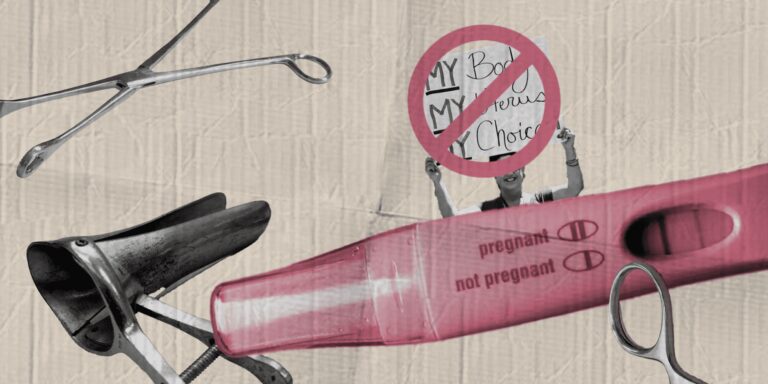In August of last year, Abeer Ahmed (a pseudonym) was waiting her turn at the outpatient clinic of a public hospital specializing in dermatology and venereology in the Sayeda Zeinab area of Cairo. She was hoping to finally receive a definitive treatment for genital warts, a condition she had been diagnosed with a few months prior. However, after waiting for several long hours, she was shocked to be denied a medical examination. “When I entered the examination room, the nurse asked about my age and marital status. When I told her I was unmarried, she said they couldn’t allow me to be examined unless my mother or father was present,” Abeer recalls.
Abeer, 25, has had a previous negative experience with public hospitals but felt compelled to go to this one due to the high costs of private clinics. “When I visited a gynecologist, she told me I would need cauterization sessions and referred me to a dermatologist and venereologist. At that time, the sessions were going to be very expensive for me and beyond my means, especially since I learned I would need more than one session.”
After a lengthy discussion witnessed by the specialist doctor in the hospital, who was present in the same room, Abeer tried to explain to the nurse that she was not alone but was accompanied by her cousin, who would be with her during the examination. However, the response was definitive: “We can’t do anything for you unless a family member is with you and aware that you will undergo cauterization sessions.”
Abeer is not alone
In June of last year, Maryam Mohamed, accompanied by her mother, visited the gynecology clinic at a public hospital in the Shubra district of Cairo to seek a diagnosis for some symptoms she was experiencing. However, the specialist doctor informed her that she needed to get married first and then return for an examination and appropriate treatment.
Maryam, 23, suffers from severe monthly pains that keep her bedridden for days, in addition to other symptoms that painkillers do not alleviate. These symptoms began more than a year and a half ago, but to this day, she does not know their medical causes.
Maryam vividly recalls the gynecologist’s response to her complaint, which was a single sentence without even leaving her chair: “She told me, ‘There is nothing I can do for you. You’re talking about some ordinary symptoms, which could be ovarian cysts, but I can’t do anything for you as long as you’re unmarried. Get married and come back the next day, and I’ll treat you.’”
At the end of their conversation, the doctor advised her to take vitamin D tablets, explaining that the symptoms she described resembled those of a vitamin D deficiency, according to Maryam.
Article 18 of the Egyptian Constitution states that “Every citizen has the right to health and comprehensive healthcare in accordance with quality standards, and it is a crime to withhold any form of medical treatment from any person in emergency situations or life-threatening conditions.” Additionally, Article 20 of the Code of Medical Ethics, issued by the General Syndicate of Doctors of Egypt by decree of the Minister of Health and Population in 2003, stipulates that “a doctor must do everything in his power to treat his patients, alleviate their pain, treat them well, and provide equal care without discrimination.”
According to the Tadween Center for Gender Studies, medical discrimination against women is “discrimination that women suffer from in Egypt and worldwide, where women might receive lesser service or delayed diagnosis simply because they are women.” This discrimination in the medical field stems from the stereotyping of women by healthcare providers as exaggerating their illness, resulting in misdiagnosis and increased complications that could have been avoided if women’s complaints were taken seriously.
In her book “Singled Out”, social psychologist Bella DePaulo describes how healthcare providers share a medical bias against women simply because they are unmarried, and how marital status can influence medical decisions in ways that might go unnoticed. The book presents cases of single women who faced medical discrimination.
In 1981, 189 countries, including Egypt, ratified the “Convention on the Elimination of All Forms of Discrimination Against Women (CEDAW),” signed in Copenhagen in 1980. Article 12 of the convention states that “States Parties shall take all appropriate measures to eliminate discrimination against women in the field of healthcare to ensure, on a basis of equality between men and women, access to healthcare services, including those related to family planning.”
Medical Violence
“Medical violence against women” is how Ghadeer Ahmed, a feminist writer and researcher specializing in women’s and gender studies, describes the refusal of doctors to examine women on the grounds that they are unmarried. According to Ahmed, this constitutes a form of gender-based violence.
Ghadeer Ahmed attributes the causes of this medical violence to “the patriarchal attitudes within medical staff, who believe that unmarried women do not have the same rights to examination and medical care as married women.” She argues that “these attitudes are shared by medical staff and families regarding the ‘hymen’ and what it symbolizes about family honor. Therefore, doctors apply these beliefs through their professional authority to uphold this symbol according to their convictions, potentially endangering the lives of many unmarried women and putting their health at risk.”
Noha El-Sayed, a feminist activist and the executive director of Sawt, an initiative supporting women’s rights, believes that “the medical discrimination faced by unmarried women is a form of societal patriarchal guardianship and the imposition of patriarchal authority used by some doctors in their work.”
She asserts that “the role of the specialist is to conduct a medical examination based on the patient’s condition, not to set rules or instructions that force unmarried women to be accompanied by a ‘guardian’ during the examination or to refuse to examine them.”
A 2018 study on the theory of gender bias in healthcare showed that medical professionals were more likely to classify female patients as overly sensitive, hysterical, or time-wasting. Meanwhile, a review by The New York Times of three books related to women’s health begins with two stories: one about a woman diagnosed with breast cancer who chooses to have a mastectomy, but her doctor objects, saying, “But you are not married,” and another about an eleven-year-old girl being told that “her endometriosis will go away once she gets married and has children—childbirth will relieve the pain.”
For months, Abeer remained anxious about her illness and its progression, as well as the fear of facing rejection at another hospital. “It was one of the hardest periods of my life because I spent a long time not knowing the nature of my illness. When I finally learned what it was, I faced rejection at the hospital,” says Abeer.
Hussein Kamel, an attorney and the executive director of Thakanat Maadi Community Development Association, a non-profit organization, states: “A doctor working in a public institution (a public hospital) has a duty to perform his job in that institution and is not allowed to refuse treatment to any patient who requires it.” However, there is a lack of clear legislation in the Egyptian Penal Code that permits the punishment of a doctor for violating professional ethics or refusing to treat a patient unless it constitutes a complete crime that warrants criminal liability. The material element, according to Kamel, “is the act of refusing to admit or treat a patient, provided that the patient is in real danger requiring the doctor’s immediate intervention. The moral element of this crime involves the refusal being intentional, meaning that the doctor is aware of the danger and deliberately refrains from providing assistance.”
Kamel adds: “Therefore, the accountability of a doctor for refusal is only disciplinary, where they are referred to the disciplinary court on charges such as violating professional ethics or failing to perform their duties as a public employee. The penalties can include salary deductions or warnings, up to and including dismissal.”
According to Article 24 of the Code of Medical Ethics, “In non-urgent cases, a doctor may decline to treat any patient initially or at any stage for personal or professional reasons. However, in urgent cases, a doctor cannot refuse.” Article 25 of the Code states, “A specialist doctor cannot refuse to treat a patient if requested by a general practitioner and if no other specialist is available.”
Nivin Ramzi (a pseudonym), 25, says she has been experiencing monthly bleeding accompanied by severe pain for about six years. Despite a long journey through various gynecology clinics, she has been unable to get a medical diagnosis for her condition and has to wait until she gets married to understand the medical reasons for her chronic pain. “Every doctor I went to gave a different reason for my condition, and none of the medications I took worked because there was no real diagnosis of my condition. I’ve been living on painkillers and monthly medications to temporarily control the bleeding,” says Nivin.
Two years ago, one of the gynecologists told Nivin that “her condition required a 4D ultrasound to get a proper diagnosis, but she could not perform it because Nivin was still unmarried.” Nivin recalls, “The doctor told me that even if I tried to get it done at a public hospital, it would be refused for the same reason: because I am single.”
Since then, Nivin has adapted to her condition: “I went through a long journey with doctors, ending up accepting that I will experience severe bleeding every month, along with excruciating pain that can last for more than 10 days. I’ve adapted to not knowing what’s wrong with me simply because I am single.”
According to the World Health Organization, endometriosis affects 190 million people, nearly 10 percent of women and girls of reproductive age worldwide. Early and effective diagnosis of this disease is important, but this possibility may be limited in many places, including low- and middle-income countries.
According to Patient Safety, “the average delay in diagnosing women with this disease ranges between 6 and 11 years.”
Dr. Maria Armia Helmy, a specialist in gynecology and obstetrics, believes that “it is necessary to change the societal misconception that unmarried women are prohibited from visiting gynecologists. Some diseases can affect women whether they are married or not.” She says, “It is not difficult for a patient to bring a family member with her when visiting a specialist. The presence of a family member, such as her mother or father, serves as protection and respects her privacy, not a real rejection of her health condition.” She adds, “Clinical examination is part of the diagnostic process, and it is medically incorrect to diagnose a patient based solely on the description of symptoms.”
Over time, Abeer recovered without having to visit a doctor again, while Maryam and Nivin still suffer from the same symptoms and pains.
We attempted to get a comment from Dr. Hossam Abdel Ghaffar, the official spokesperson for the Egyptian Ministry of Health, regarding the cases of Abeer and Maryam, but we did not receive a response by the time of publishing this report.





